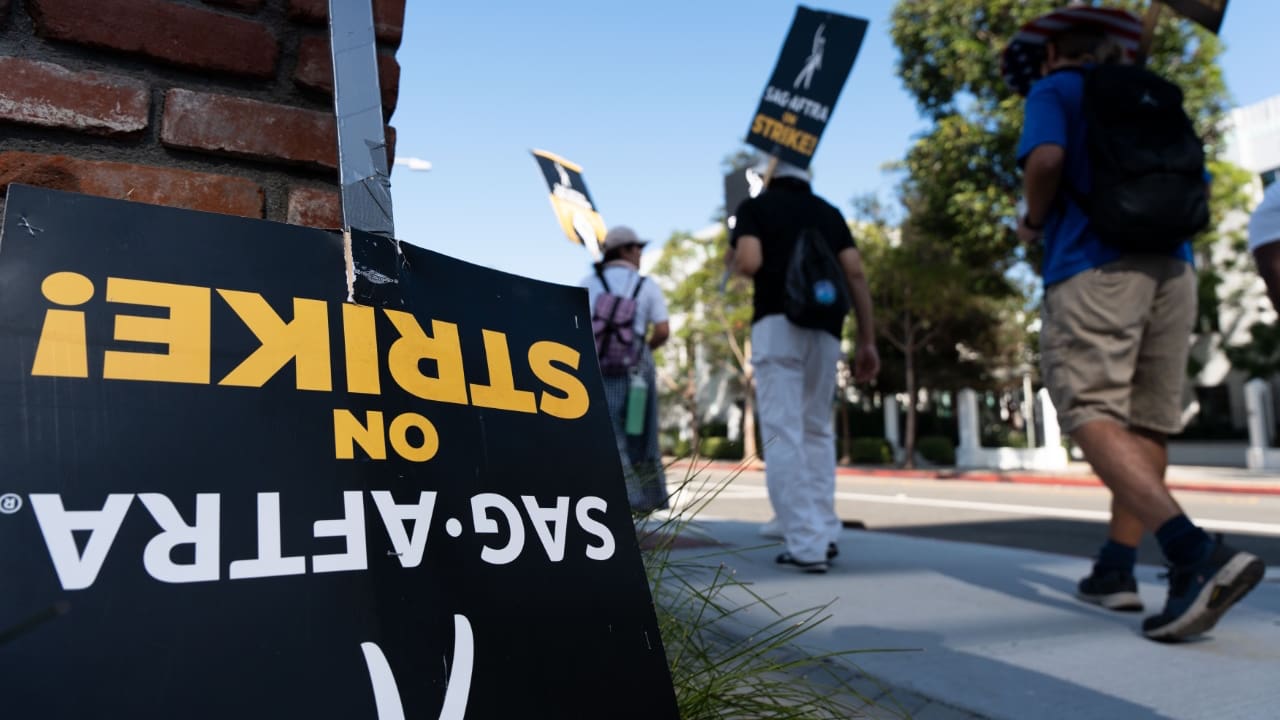
Reports from the US say that both sides of the long-running US actors’ strike have reached a tentative settlement.
Ultimately, the writers were out for 148 days before reaching a deal, while the actors now reach one roughly a month quicker at 118 days. This is by far the longest actors’ strike against the TV and film companies, eclipsing the 1980 action that ran for 95 days (though, for completion's sake, the pre-merger SAG and AFTRA ran a six-month-long campaign against commercial producers in 2000).
It’s not fully signed, sealed, and delivered just yet. The union’s negotiating committee approved the deal on a unanimous vote. Still, we have to wait for SAG-AFTRA national board approval on Friday for the final green light, which should theoretically be a rubber stamp. Then, of course, the union members must ratify the deal, which will take another week or so.
But the strike is over. Members can be back at work today.
Details are still emerging, and it will be interesting to see exactly what the fine print is on the text surrounding ‘protections’ on AI, which was reportedly the big sticking point preventing a deal from being signed earlier in the dispute. But we do know so far that in a $1 billion package, most minimums to actors will increase by 7% (interestingly, 2% above what the Writers Guild of America and the Directors Guild of America managed to negotiate).
There is also what is being referred to as a 'streaming participation bonus’, compensation ‘bumps’ to background actors, more protection for diverse communities, and increases in pension and health contributions. Apparently, though, the union didn’t get everything it was after on the streaming front and is already saying it will seek to move the dial there again in the next negotiation in 2026.
But the studios had warned that the 2023-24 TV season would be lost entirely if work didn't start soon and that next summer’s movie season would be disastrously impacted. With reports suggesting tensions growing within the SAG-AFTRA membership, a deal now probably represents the best possible outcome.
So, that’s it (probably) for now. But there is some definite unease at what has just taken place. “The Hollywood labor contract negotiating process needs to be taken apart and rebuilt for the modern era,” argues this provocative piece in Variety. And studios are already turning nervous eyes to the next big potential labor flashpoint when IATSE’s master contract expires at the end of next July.
IATSE, to give it its full name, is The International Alliance of Theatrical Stage Employees, Moving Picture Technicians, Artists and Allied Crafts of the United States, Its Territories and Canada, and has 168,000 members. These are the crew, tech, and craft workers that keep the whole thing afloat, and they all reportedly came close to striking in 2021. The entire industry will be hoping that some of the lessons learned and concessions won over the last 118 days can be applied before another union decides that strike action is the only way to improve the lot of their members.
Tags: Production


Comments